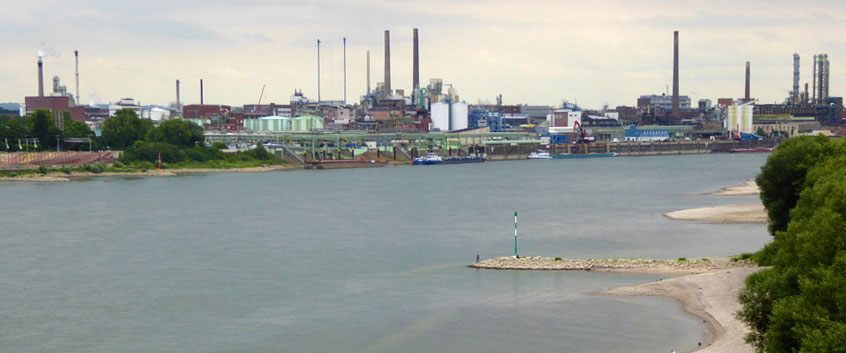
Department of Ecotoxicology
The use and handling of chemicals of different types and quantities is an integral part of modern societies. This leads also to pollution in the environment. The impact of chemicals in the environment depends on the properties and composition of the environmental pollutants and the exposed organisms and ecosystems. But what determines the amount of chemicals that have a biological effect? How do chemicals disrupt biological processes? How does short-term stress lead to long-term damage? What are the effects of chemical pollution on biodiversity and ecosystem functions? And can we predict and assess the combined effects of pollutants and other environmental stresses such as climate change?
With our research in the Department Ecotoxicology we want to assess harmful combined effects. This assessment is based on a mechanistic understanding of biological processes. Our aim is to provide bioanalytical methods for the detection of risks in the environment and for the risk assessment of chemicals. The establishment of dose-response relationships is a central component of our work.
Our current research focuses on analyzing the combined effects of environmental chemicals, nanoparticles and microplastics. We conduct experimental studies in various biological model systems and develop data-driven approaches for the analysis and assessment of environmental risks from chemical exposure. We investigate effects and impacts both in individual organisms and in complex biological communities down to the molecular level. In addition, we develop alternatives to animal testing (new approach methods) using high-throughput methods with eggs of zebrafish and various cell-based systems.
We communicate our research in the form of original publications, novel methods and assessment & prediction procedures. We also disseminate our knowledge to society through expert opinions and consultations on the potential negative effects of chemicals, plastic particles and mixtures in the environment. In addition, we offer comprehensive training opportunities for research enthusiasts. In cooperation with our partners from science, authorities and politics, we develop recommendations for the risk assessment and management of environmental chemicals in water bodies.
